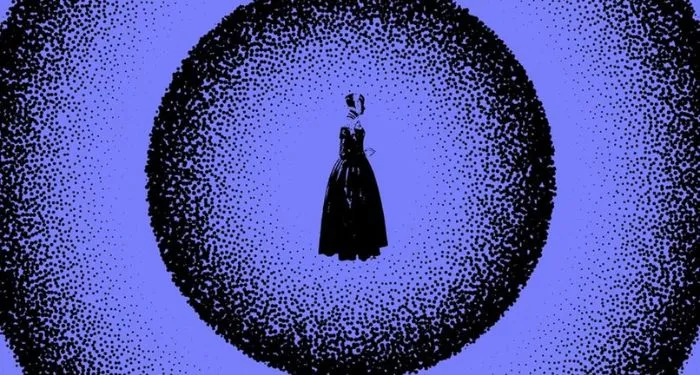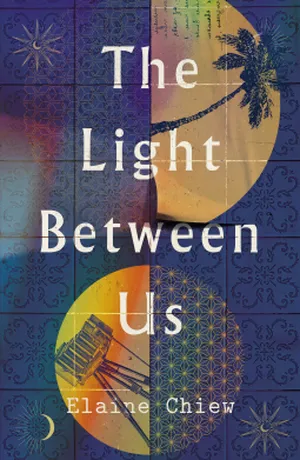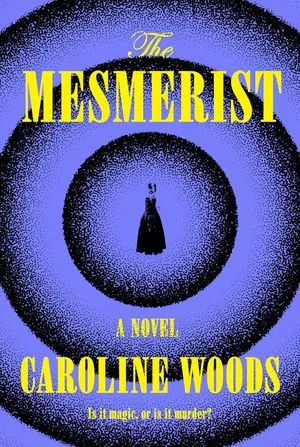
Mesmerizing Historical Fiction
We use the word “mesmerizing” pretty liberally today to indicate something arresting or spellbinding, but it had a different meaning once. The root word in “mesmerizing” comes from Franz Anton Mesmer, who, according to the American Psychological Association, popularized a technique called “animal magnetism” that was a sort of precursor to hypnotism. The history of scientific discovery is riddled with pseudoscientific offshoots, but I think mesmerism is a particularly fascinating one because of its connections to early psychology and its development.
Now, I don’t think it will be a surprise that the history of psychology and psychiatry is fairly dark. Early treatment for mental illness was more about segregating anyone with mental illness, in whatever form, fashion, or degree, from the rest of the population and controlling them by any means necessary. That often included inhumane treatment and some truly horrific procedures. It was also an easy label to put on anyone who didn’t fit into white patriarchal and heteronormative society. No one questioned a man who said his wife was hysterical, even if he benefitted from having her locked up, or a family who said their daughter who didn’t want to marry was delusional. Nellie Bly’s explosive account of life inside an insane asylum forced the public to reckon with the horrific treatment hidden behind asylum doors. One particularly jarring line from her account reads:
“From the moment I entered the insane ward on the Island, I made no attempt to keep up the assumed role of insanity. I talked and acted just as I do in ordinary life. Yet strange to say, the more sanely I talked and acted the crazier I was thought to be…”
Nellie Bly, Ten Days in a Mad House
So, it’s safe to say that as horrifying as the history of asylums and the treatment of mental illness was in the past, it’s also equally fascinating. Maybe that’s because it does read like real-life horror, and there’s something in us that craves to understand the deepest depravities of humanity. As someone who lives with anxiety and depression, these stories hit particularly close to home for me. That’s probably why I’m drawn to books about the subject. In addition to Bly’s exposé, we’ll explore five other books that feature mesmerism, mental illness, psychology, and life inside asylums from a historical perspective.
But first, as always, a little bookish treat and some new releases.
Bookish Goods

Optical Illusion Bookmarks from Brown Palette Designs
If you struggle with eye strain while reading, these bookmarks might not be for you. But personally, I love them. $4
New Releases

The Light Between Us by Elaine Chiew
Release date: September 10, 2024
In the vein of The Lake House, this historical romance novel sees an unlikely relationship take shape between a photography archivist and a 1920s photographer from Singapore’s colonial past. As their communications grow more difficult and the threat of Japanese occupation grows, Charlie sends one last desperate letter in an attempt to save their love story from a doomed fate.

The Mesmerist by Caroline Woods
Release date: September 10, 2024
Based on the true case of a serial killer who terrorized—and scandalized—Minneapolis in the late 1800s, The Mesmerist follows a woman eager to end her year at a home for unwed mothers. May is finally about to get her happily ever after, but first, she’s tasked with digging into the past of her new roommate, a woman named Faith, who refuses to talk about her time before she arrived at Bethany Home. May expects it to be a relatively easy task, but as her search draws her into the seedier sides of the city, she begins to question the motives of everyone around her.
Riot Recommendations
I think my inspiration was pretty obvious this week: the title and cover of The Mesmerist by Caroline Woods. Though fascinating, that story doesn’t focus quite as much on psychology and mesmerism as I would have liked, so here are three other books that do.

The Mad Women’s Ball by Victoria Mas
At The Salpetriere Asylum in Paris, women are locked away and labeled mad, when in reality, many have merely become inconvenient. For one night a year, the patients get a reprieve; they’re dressed up in finery and allowed to enjoy themselves while Parisian society comes to gawk. But it might also be the perfect chance for escape for one young patient enamored with the burgeoning world of spiritualism and a nurse who has long eschewed all religion in favor of science.

Alias Grace by Margaret Atwood
A woman sentenced to life for the murder of her employer and his head housekeeper meets a doctor who believes he can help prove her innocence. Grace isn’t convinced. She can’t remember the day that changed her life forever. At least, that’s what she claims. Dr. Simon Jordan, a pioneer in the new field of mental illness, believes he can assist in accessing her subconscious. But as Grace’s past and present intertwine, it becomes clear that getting to the truth of what happened will be much easier said than done.

Madness: Race and Insanity in a Jim Crow Asylum by Antonia Hylton
If you’re thinking this looks more like a nonfiction book than a historical fiction book, then you’ve already sussed me out. I was disappointed by the lack of diversity I found among historical fiction about psychology and decided to counteract that by including a nonfiction book that has been called a “page-turner” and compared to The Immortal Life of Henrietta Lacks. In Madness, award-winning journalist Antonia Hylton recounts the history of Crownsville Hospital, one of the last segregated asylums with surviving records in the United States. If you’re interested in the history of psychology, mental illness, and asylums, it’s well worth a read.
If you want to talk books, historical or otherwise, you can find me @rachelsbrittain on most social media, including Instagram, Goodreads, and Litsy.

Right now, I’m reading Frog Music by Emma Donoghue.















